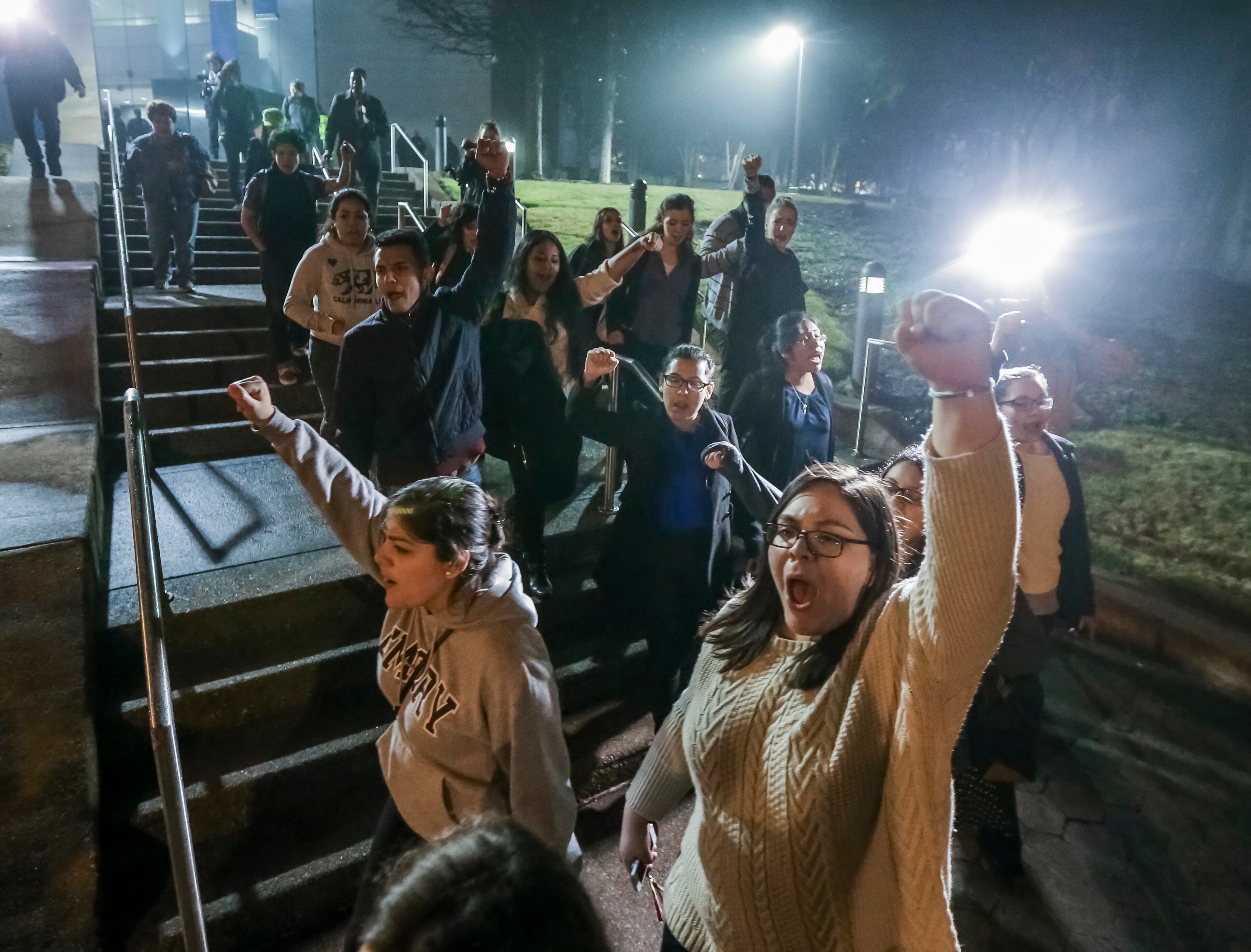Georgia's ban on undocumented college students puts state on wrong side of history
Angela Stuesse is assistant professor of anthropology at the University of South Florida and author of "Scratching Out a Living: Latinos, Race, and Work in the Deep South." Shannon Speed is associate professor of gender studies and anthropology and director of the American Indian Studies Center at UCLA.
Today, they urge Georgia to change its higher education policies toward undocumented students.
Georgia bars immigrants without legal status -- even if those young people attend Georgia k-12 schools all their lives and graduate at the top of their high school class -- from enrolling at some of the state's top universities and paying in-state tuition at others. The affected students and their allies have sued Georgia's Board of Regents, lobbied at the state Capitol and staged acts of civil disobedience without success.
By Angela Stuesse and Shannon Speed
Since 2011 the Georgia Board of Regents has banned undocumented students from attending Georgia’s top five public universities and prohibited them from qualifying for in-state tuition. On Monday, the Georgia Supreme Court upheld this policy in a ruling that condones segregation in higher education.
The court is on the wrong side of history, and its decision hurts Georgia. Here’s why the Regents should lift the bans on undocumented students by repealing Policy 4.1.6 and Policy 4.3.4.
All state universities exist first and foremost to educate the people who live and pay taxes there. According to a recent report by the Georgia Budget & Policy Institute, immigrants contribute substantially to Georgia's economy. Immigrants represented 13 percent of the state's workforce in 2013, and between 2006 and 2010 new immigrant business owners earned a net business income of $2.9 billion. More importantly, undocumented immigrants paid over $352 million in state and local taxes in 2012, the most recent year of available data.

The Georgia Budget & Policy Institute report also demonstrates that these policies undercut the state’s competitiveness in the national and global marketplace. They limit the making of a diverse, attractive workforce, setting Georgia behind 27 other states with more inclusive tuition policies.
They undermine Gov. Nathan Deal's Complete College Georgia initiative, which calls for the creation of 250,000 additional college graduates over the next five years. And they fail to capitalize on Georgia's investment in its K-12 school system by incentivizing talented young people to leave the state in search of an education. Those that do complete college out-of-state are less likely to return to Georgia once they begin their careers.
In fact, it is estimated that Georgia could increase state and local tax revenues by $10 million through a more skilled, higher earning workforce just by lifting the bans on undocumented students. Instead, Georgians are investing in the talents of young people only to watch them go untapped or to lose them to other, more welcoming, places.
In a powerful act of protest against these realities, on Monday undocumented immigrant students and documented student allies representing 12 universities from Georgia and across the country, including Harvard, Smith, Bard, Morehouse, and Spelman, participated in classroom sit-ins at three of Georgia's flagship public colleges.
At the University of Georgia, Georgia State University, and the Georgia Institute of Technology, participants occupied classrooms from which undocumented students are banned and together participated in integrated teach-ins about the histories of racialized oppression in the United States. In the act of sitting and learning together in this space, participants protested the ways in which they are caught up in these very processes.
Coordinated by Freedom University, an Atlanta-based freedom school for undocumented students in Georgia, these actions took place the 56th anniversary of the nonviolent lunch counter sit-ins in Greensboro, North Carolina, in 1960. There, four Black students who integrated a whites-only Woolworth's counter to protest the store's policy of racial segregation ignited a youth-led movement that played a crucial role in mobilizing the nation in support of equal rights for all.
More than a half century later, in confirming the Board of Regents’ decision to refuse education to qualified undocumented young people, the Georgia Supreme Court lends support to segregation in higher education not unlike that protested by student leaders of the Civil Rights Movement in Greensboro and beyond. Like segregation then, these policies serve to maintain a racialized second class of citizens—in today's case, undocumented young people—as part of an uneducated, low-wage workforce. As state policy, this is unconscionable.
As university professors we participated in this week’s protests. The young people we encountered are bright, earnest, and eager to learn. They have much to contribute to make Georgia, this country, and the world a better and more prosperous place. They are also brave, determined, and clear about the fact that education is a human right.
We call upon the state of Georgia to stand up not only for what is right, but also for what is in its own economic interest. Rather than forcing undocumented young people into a life of substandard wages that produces little in the way of innovation or economic growth, let’s end Georgia’s legacy of segregation once and for all. Lift the bans and let them shine.



